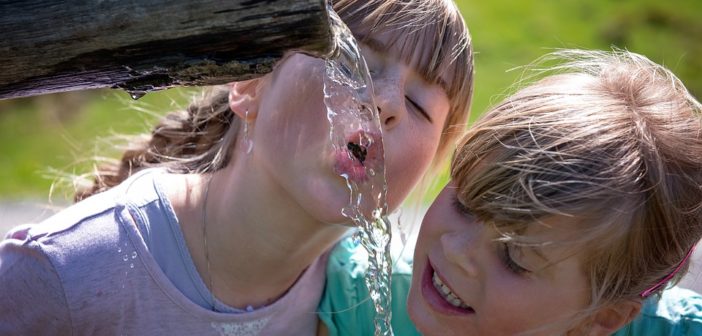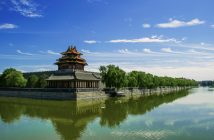Is Beijing water safe to drink?
According to Environmental Engineering students from Tsinghua University, Beijing water as it leaves the treatment plant has been tested and was found to be safe and adequate for human consumption. In the line before it reaches your home it could possibly pick up contaminants from the pipe line or breaks in the line. If you filter the water at your home, you can remove pollutants that may have gotten in on the way.
Many people are afraid of the pollutants tap water may have and choose to drink only bottled water. Bottled water is not necessarily different from filtered tap water. It is most convenient to install a good quality water filter at home. Filtered tap water should be as safe for cooking and drinking as bottled water. If you have a filter, make sure you change the filter cartridge periodically to insure the water quality is maintained.
Why is water important?
As you have probably heard more than 60% of the human body is made up of water, and it is responsible for many body functions such as the transportation of nutrients and oxygen, moistening and cleaning several surfaces such as eyes, mouth, nose and lungs, lubricating the movement of the joints, controlling body temperature and helping remove toxins from our body.
How much water do we need to drink per day?
The amount of water needed per day varies with the amount of physical activity, food intake and environmental temperature; in dry climates such as Beijing it is important to drink more. As a baseline we should try to stay above 8 cups of liquid per day. For someone who is pregnant it should be at least 10 and for a breastfeeding mother at least 13. If you are eating abundant juicy fruits and veggies you may be supplying up to 20% of your daily water requirement. Some fruits are greatly hydrating. You should not consider black tea and coffee to be hydrating drinks. Caffeine actually takes water away from the body, so for each cup of tea or coffee you drink take at least one cup of water.
If the color of your urine is clear or light yellow this means you’re getting enough fluids. Lack of water causes dehydration which drains your energy and makes you feel tired.
Can you drink too much water?
Yes, people diagnosed with heart conditions or low salt levels must restrict their daily water intake.
When is the best time to drink water?
It is best to drink water all throughout the day, but not at meals. When you are eating a meal your stomach is full already and adding volume will distend the stomach, dilute the gastric juices, delay digestion and increase the probability of gastric reflux (heart burn).
Once you have gone to sleep avoid getting up to drink water. During the night your body including your kidneys should rest and if you develop a full bladder will make it more difficult to maintain your sleep until morning.
If you feel intensely thirsty it means that you have fallen behind in the hydrating process. You are already late. You must anticipate and drink water before you become thirsty.
Water is not only important to keep us healthy, energetic, and looking young and beautiful, it is also important in the healing process of many illnesses such as coughs and nasal congestion. It is an excellent expectorant, it helps clean and relieve urinary tract symptoms when there is an infection or kidney stone, and it will also help relieve constipation and most headaches.
Something that may help you take enough water every day is adding lemon to the water, and to keep a handy water bottle close to you wherever you go.
Need more info?
Dr. Dorothy Dexter is a family medicine physician at Beijing United Family Hospital. She has several years of clinical experience, and speaks English and Spanish. Contact her at dorothy.dexter@ufh.com.cn.
This article originally appeared on page 22 of the 2016 June-July Issue of beijingkids magazine. Click here for your free online copy. To find out how you can obtain a hard copy, contact distribution@truerun.com.
Photo: Pezibear-Pixabay




